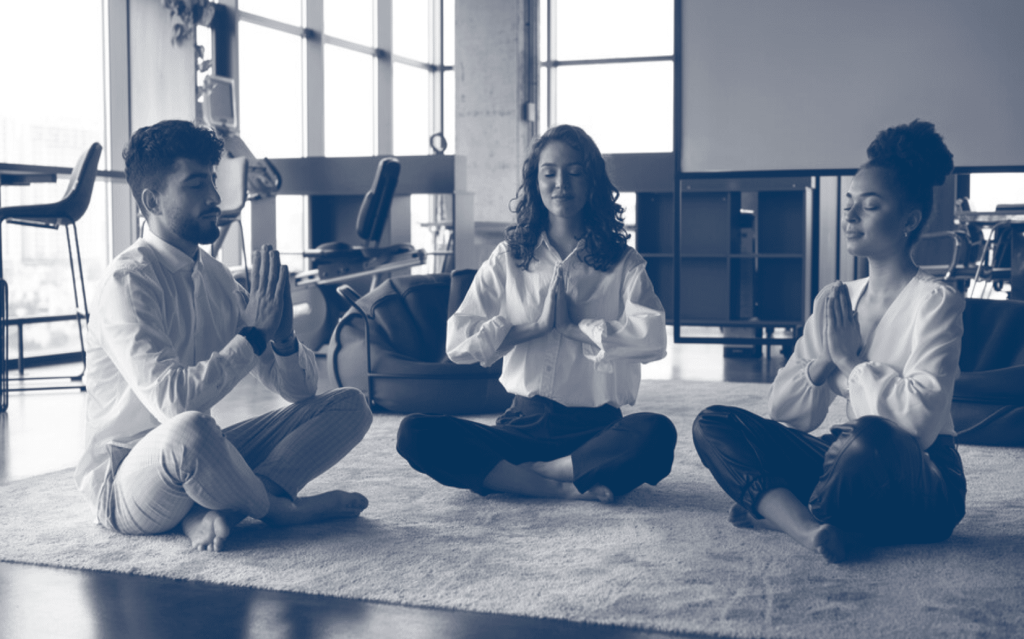Meditation in the Bath: The Influence of Nigerian Cultural Elements on Well-Being Practices

A Deep Dive into Bathing and Meditation Practices
In today’s fast-paced world, the significance of maintaining mental health and physical well-being cannot be overstated. Many individuals are turning to alternative methods to rejuvenate their minds and bodies, and one of the most intriguing practices emerging from Nigeria is the art of meditation in the bath. This unique ritual not only allows individuals to unwind but also serves as a gateway to explore their cultural roots and spiritual beliefs.
Cultural Significance
Nigerian traditions often emphasize the importance of rituals that focus on mental and spiritual health. From the indigenous practices of the Yoruba and Igbo to the varied customs across the nation, these cultures have long celebrated individuals taking time for introspection. In many communities, the ritual of bathing is more than just a personal hygiene task; it is a sacred act of cleansing that draws on age-old practices to promote peace and tranquility. This cultural backdrop enriches the experience of meditation, making it deeply personal and influential.
Spiritual Elements
Many Nigerians incorporate their religious beliefs into their self-care routines, enhancing their bathing rituals with spiritual significance. For instance, some may light candles or burn incense infused with frankincense, a practice rooted in various religious traditions. The space may be adorned with meaningful symbols or personal items that conjure feelings of gratitude and connection. By harmonizing physical cleansing with spiritual awareness, these practices align the body and spirit, leading to profound personal revelations during moments of meditation.
Natural Elements
The use of local herbs and essential oils cannot be overlooked when discussing the enhancement of the meditative bathing experience. Ingredients such as scented leaves known for their calming properties, like mint or lemon balm, are often used. Furthermore, oils derived from plants like shea or eucalyptus can create an aromatic embrace that soothes the senses. Whether adding these natural elements into the bathwater or creating a personalized scrub, they contribute significantly to fostering a harmonious atmosphere conducive to meditation.
By merging the calming effects of bathing with the inward focus of meditation, individuals can unlock a plethora of benefits, from reduced stress levels to enhanced mental clarity. This practice not only revitalizes the body but also forges a deeper connection to cultural heritage and personal identity.

As we explore the synergy of traditional rituals and modern self-care methods, we take a journey through various Nigerian influences. The therapeutic qualities of water, the impact of traditional music—such as drumming and chanting—and even the environmental ambiance play pivotal roles in shaping this enriching experience. As you delve into these discoveries, consider how the integration of bathing and meditation can become a pivotal part of your wellness journey, blending the past with present revitalization techniques.
LEARN MORE: This related article may interest you
The Intersection of Tradition and Wellness
The practice of meditation in the bath is a reflection of Nigeria’s rich cultural tapestry, weaving together ancient wisdom and contemporary wellness trends. This ritual not only serves as a moment of respite but also acts as a conduit through which individuals connect with their heritage. The act of bathing has roots deep within various Nigerian cultures, often symbolizing renewal and purification, thus allowing one to release negative energies while inviting tranquility.
Cultural Rituals of Cleansing
Across different ethnic groups in Nigeria, bathing rituals often incorporate communal aspects, where activities are shared with family or within the community. For example, in the Yoruba tradition, rituals performed during the bathing process are believed to cleanse not just the body but also the spirit. Such rituals may include chanting specific prayers or spiritual songs, invoking the presence of ancestors for guidance and protection. These practices underscore the vital role that communal and cultural ties play in the well-being of individuals, promoting a sense of belonging and emotional health.
Integration of Traditional Music
The auditory elements of the bathing experience can also enhance meditation. Traditional Nigerian music plays an important role in setting a calming atmosphere that fosters relaxation and focus. Whether it is the rhythmic beats of a talking drum or the soft melodies of voice harmonies, these sounds can transform a simple bath into a meditative sanctuary. The incorporation of such elements is not merely coincidental; rather, it is an essential part of the rituals, allowing practitioners to immerse themselves fully in the experience.
Benefits of Natural Remedies
The use of herbal remedies further amplifies the cleansing and meditative aspects of bath rituals. Many Nigerians utilize locally sourced herbs with healing properties, such as basil, rosemary, and ginger, either added to bathwater or for creating soothing scrubs. These natural elements offer a way to connect with the land, bringing a holistic approach to self-care. By using these ingredients, individuals not only embrace the essence of their environment but also promote their well-being in ways that resonate with their cultural identity. Here are a few common natural remedies used:
- Basil: Known for its calming effect and ability to relieve stress.
- Rosemary: Often used for mental clarity and invigoration during meditation.
- Ginger: Stimulates the body and is believed to help in improving circulation.
As these rituals of meditation in the bath intertwine with elements of culture, they highlight the significance of nurturing mental health in a way that respects both personal and communal heritage. By embracing these practices, Nigerians can cultivate a greater sense of well-being while paying homage to the cultural legacies that shape their lives.
Meditation in the Bath: A Cultural Intersection
Mainstream wellness practices often overlook the integrated wisdom of various cultural backgrounds. The Nigerian cultural approach to well-being is particularly enriching. Meditation in the bath emerges as a unique intersection of relaxation and cultural immersion. This practice not only enhances personal hygiene but also enables one to connect with deep-rooted healing traditions inspired by Nigeria’s rich heritage.
The Integration of Herbal Elements
One significant aspect of Nigerian well-being practices is the use of herbs and natural ingredients in bath routines. Traditional Nigerian herbs, such as neem and moringa, are reputed for their therapeutic properties. Incorporating these natural elements into bathing creates a sensory experience that enhances mental clarity and emotional balance, paving the way for deeper meditation.
Spiritual Rituals
The act of bathing is often ritualistic in many Nigerian cultures, symbolizing purification and spiritual renewal. As one meditates in the bath, they may engage in various spiritual rituals, such as reciting affirmations or ancestral prayers, further solidifying the connection between the body, mind, and spirit. This holistic engagement has been shown to bolster mental well-being and foster a calming atmosphere conducive to self-reflection.
Community and Connection
Nigerian cultural practices emphasize community well-being. Bathing rituals often include song and dance, fostering a collective meditation experience. Engaging in these practices alone or with loved ones can bring a sense of belonging and connection, enhancing overall life satisfaction. By connecting physical cleanliness with spiritual clarity and social interaction, the meditative bath transforms into an enriching cultural experience.
| Category | Advantages |
|---|---|
| Cultural Practices | Integrates Nigerian traditions with modern meditation. |
| Mindfulness Enhancement | Encourages deep relaxation and self-reflection. |
| Herbal Benefits | Utilizes traditional herbs for their therapeutic properties. |
| Community Connection | Fosters a sense of belonging through shared rituals. |
This holistic approach sheds light on the profound impact of cultural practices on well-being, illustrating how meditation in the bath, inspired by Nigerian heritage, enriches both the mind and spirit. The integration of traditional rituals and natural elements enhances the entire wellness experience, motivating readers to explore these mindful practices further.
LEARN MORE: This related article may interest you
Mindful Bathing: The Psychological Aspect of Cultural Practices
The act of meditation in the bath transcends mere physical cleanliness, manifesting as a key component in the mental and emotional well-being of individuals. Within the Nigerian context, the profound connection between water and the spirit has been explored in various cultural narratives, emphasizing its role as a medium for mental relief and rejuvenation. Engaging in this practice allows individuals to pause, reflect, and center themselves, contributing to a thorough psychological detox.
Spiritual Significance of Water
Water has long been revered in many Nigerian cultures for its spiritual significance. In traditional beliefs, water embodies life, purification, and spiritual renewal. The Igbo people, for example, attribute a multitude of healing and protective qualities to rivers and streams, often incorporating water into their meditation practices. When individuals immerse themselves in water during a bath, they not only cleanse their physical forms but also channel positive energies, inviting a sense of peace and mental clarity. The Yoruba cosmology similarly views bodies of water, such as the revered Osun River, as sacred spaces that nurture both body and soul.
The Role of Aromatherapy
Aromatherapy is another critical aspect that enriches the experience of meditation in the bath. In Nigeria, the infusion of essential oils derived from local plants—such as neem, balm mint, and lemon grass—not only supports physical health but also enhances relaxation. The power of scent can evoke memories and emotions, creating a more immersive meditative experience. Scientific research supports the idea that certain scents can reduce anxiety and promote emotional well-being. Utilizing these aromatics while bathing provides a sensory pathway to deeper mindfulness, rooted in cultural practices that honor nature and its restorative powers.
Tuning into Nature: The Power of Silence
A silent contemplation bath is a unique form of meditation that allows practitioners to connect with their inner selves without external distractions. Fostering this silence is an essential aspect of many Nigerian cultural practices. The Fulani people, known for their nomadic lifestyle, often embrace quiet moments during their rituals, allowing nature’s sounds to serve as the background score to their meditative experiences. In an urban environment, especially in bustling areas like Lagos, finding this silence can be challenging; however, creating a serene bathing environment through mindful practice allows one to transcend chaos, bringing inner peace.
- Incorporating silence: A quiet bathing experience promotes deeper reflection.
- Natural settings: Bathing outdoors by a river or natural spring enhances connection with cultural roots.
- Mindful breathing: Focusing on breath helps to anchor thoughts, enhancing the meditative experience.
The convergence of these elements—spiritual significance, aromatherapy, and silence—exemplifies the holistic approach to wellness evidenced in traditional Nigerian practices. As individuals continue to integrate these cultural aspects into contemporary rituals, they not only pay homage to ancestral wisdom but also cultivate improved mental health and a deeper understanding of self. Thus, the act of meditation in the bath becomes a transformative journey—one that bridges the past with the present, reflecting a commitment to both heritage and well-being.
LEARN MORE: This related article may interest you
Conclusion: Embracing Cultural Wellness Through Bath Meditation
In conclusion, the practice of meditation in the bath serves as a powerful intersection of Nigerian cultural elements and contemporary well-being practices. By embracing water’s spiritual significance, the therapeutic essence of natural aromas, and the profound benefits of silence, individuals can create a holistic experience that nurtures both mind and spirit. This tradition, deeply rooted in the diverse cultures across Nigeria, fosters a unique platform for personal growth and self-awareness.
Moreover, as Nigeria continues to evolve, the resurgence of these cultural wellness practices presents an opportunity to reconnect with the wisdom of ancestors while enhancing mental resilience in today’s fast-paced world. The act of bathing transcends simple hygiene; it unfolds as a ritual that engages all senses and invites inner reflection, providing a sanctuary to escape the clamor of everyday life.
As you consider integrating meditation in the bath into your routine, think about how each element—from the calming waters to the invigorating scents—can rejuvenate your well-being. By honoring these cultural practices and making them a part of your self-care regimen, you not only enrich your own life but also contribute to the preservation and revitalization of Nigeria’s rich heritage. This commitment to cultural wellness embodies an age-old understanding: that true peace resides not just within the self but also in the embrace of one’s roots.



